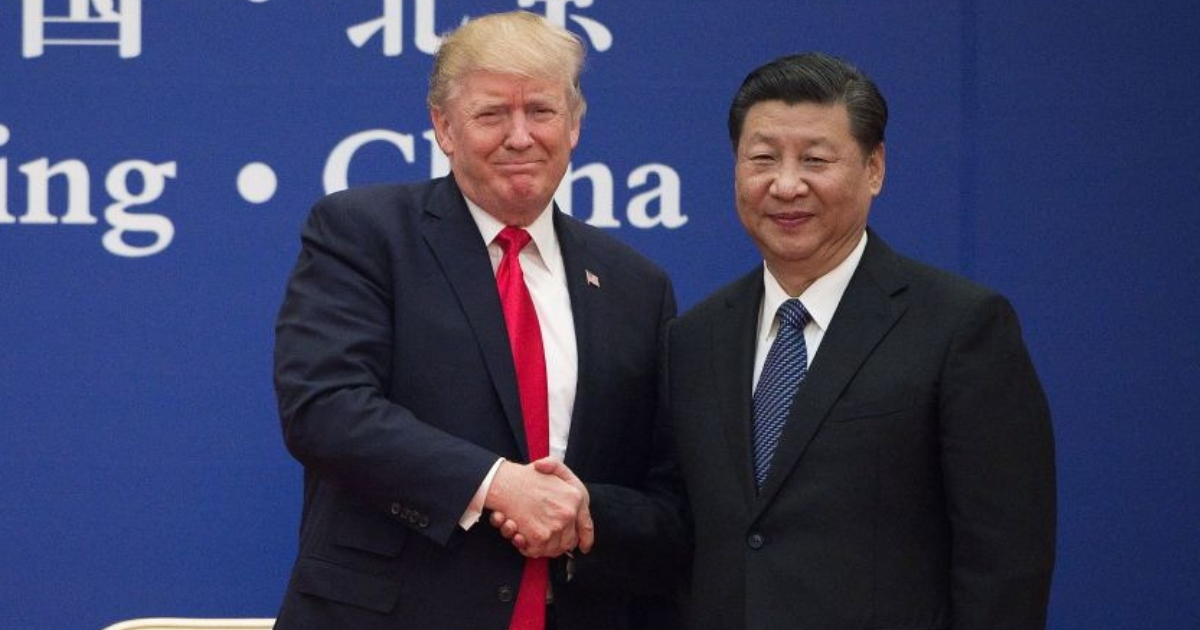
Trump's Tariffs Will Protect America's Sovereignty
President Donald Trump vowed to “fix” America’s $376 billion trade deficit with China, even if it meant starting a trade war. Last month, the two nations imposed tariffs on some $660 billion worth of products.
The trade war has begun, but is it worth fighting?
Yes it is, but not for economic reasons. The trade deficit is a problem primarily because it erodes America’s sovereignty and threatens our national security.
Last year, America’s global goods trade deficit was $807 billion. This means Americans bought far more goods than we sold to the rest of the world.
Of course, foreigners did not give us these goods for free. How did we pay for them? First, America is a large net exporter of services, but including this still leaves us $552 billion in the red. Americans balance the remaining difference by selling assets and debts.
Assets include real estate, art, corporate shares — anything of value that was produced in the past. Selling assets is not necessarily bad. For example, selling your mothballed Chevy to buy a home gym might be wise. However, pawning your grandma’s wedding ring to buy groceries is not. Context matters.
On the whole, America’s asset sales resemble pawning grandma’s wedding ring, not scrapping an old Chevy. Consider that foreigners bought $153 billion worth of American real estate in 2016 — everything from New York penthouses to Nebraskan ranches. This is part of the reason why real housing prices and rents are 73 percent more expensive today than they were in 1973. By running large, chronic deficits, Americans simply swapped “cheap” goods for high rents and big mortgages.
America also sells billions in equities, ownership of American corporations and the associated profits. As of 2017, foreigners owned roughly 38 percent of American equities (when including foreign direct investments and foreign portfolio investments). This is up from just 12 percent ownership in 2007.
America pays for the rest of the trade deficit by selling debt. This is reflected in the endless growth of America’s public and private debt burdens. For example, foreign investors own more than 44 percent of America’s national public debt, valued at over $6.3 trillion. Foreign investors also own nearly 30 percent of all U.S. corporate bonds, and a large percentage of America’s private debt.
A big problem with trading assets for goods is that it is asymmetrical — we only have so much sovereignty to sell. Eventually America will run out of homes, companies and artifacts to exchange for made-in-China dolls and Mexican pet rocks. When this happens, the consumption bubble will burst and we will be worse off than if we had never traded to begin with.
This result is “mathematically certain” according to economic modeling done by Nobel Prize-winning economist Joseph Stiglitz.
Another key element of this asymmetry is control. Foreigners are furiously buying-up our cities and control of our corporations; soon America’s economic future will be in foreign hands. This harms America by aligning our economic might with foreign entities that probably do not have our best interests at heart.
Furthermore, corporate ownership is a vector for industrial espionage. China alone steals $600 billion in American intellectual property annually.
The trade deficit lies at the heart of American national security concerns. Consider America’s nearly $400 billion trade deficit with China. This money eventually returns to America via the account surplus, but not directly.
Because America’s currency is a global reserve currency, China can easily spend its U.S. dollars in Southeast Asia, South America and Africa rather than in America. This allows them to buy political influence from local potentates and secure natural resource deposits.
America’s trade deficit is largely responsible for China’s colonial adventures in Africa. Likewise, America funds China’s “One Belt, One Road” initiative in Southern and Central Asia, which is realigning the region into China’s ambit. The trade deficit should be America’s No. 1 security concern. After all, nothing has done more to upset America’s global hegemony than China’s mercantile rise and neo-colonial expeditions.
America ran a global trade deficit for some 40 years. During this time we sold trillions worth of assets and debts — our past and our future, our sovereignty and security — to pay for “cheap” goods. This was a bad deal and President Trump knows it.
If his tariffs increase the cost of goods then so be it. Freedom is worth the price.
Spencer P. Morrison is the editor-in-chief of the National Economics Editorial. His work has appeared in publications including The Daily Caller, The American Thinker, and the Foundation for Economic Education.
The views expressed in this opinion article are those of their author and are not necessarily either shared or endorsed by the owners of this website. If you are interested in contributing an Op-Ed to The Western Journal, you can learn about our submission guidelines and process here.
Truth and Accuracy
We are committed to truth and accuracy in all of our journalism. Read our editorial standards.
Advertise with The Western Journal and reach millions of highly engaged readers, while supporting our work. Advertise Today.











